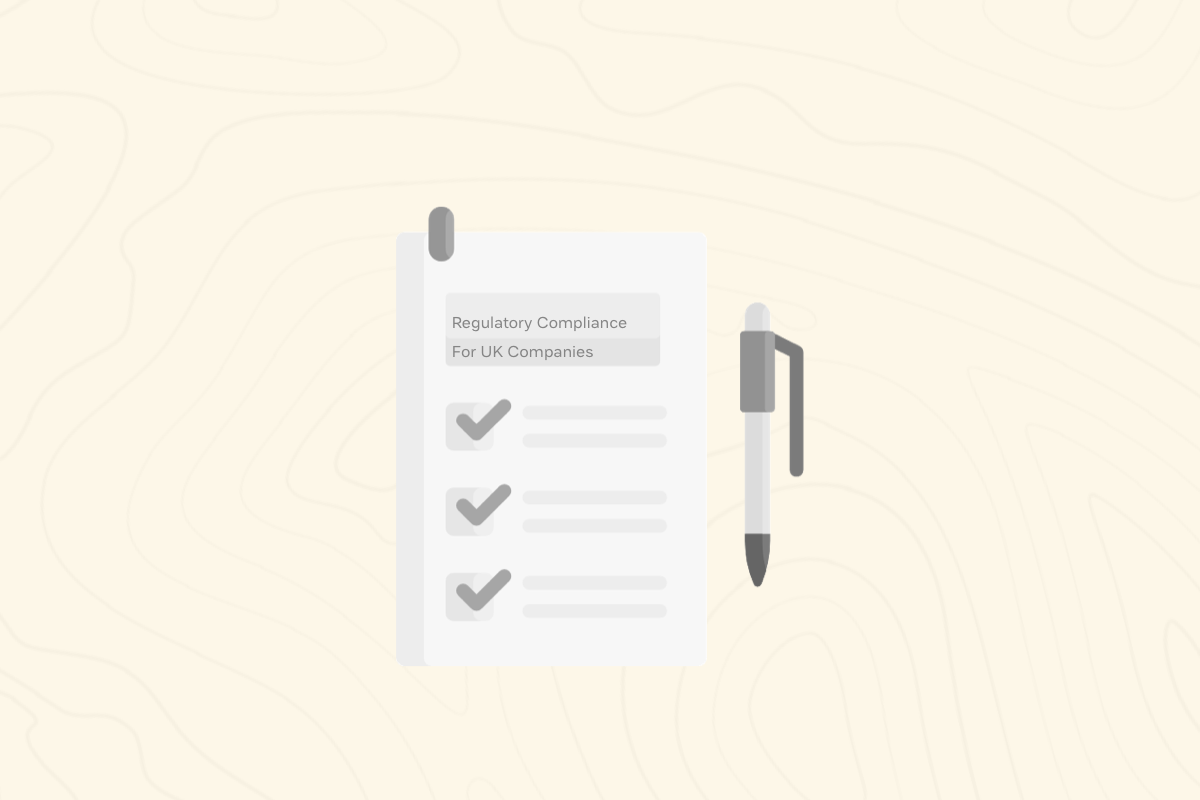The regulatory compliance checklist for UK companies serves as a starting point for companies to assess their compliance status and identify areas where they need to take further action. It is crucial for companies — operational in the United Kingdom or not — to ensure that they are meeting all relevant regulatory requirements to avoid legal and financial consequences. Before you read on, click here to automate your company’s compliance from anywhere.
Regulatory compliance checklist for UK companies
Here is a general checklist of regulatory compliance requirements that companies registered in the UK should consider:
Company’s Annual Account
Every private limited (PL) business is required to create and submit complete yearly accounts to HM Revenue and Customs (HMRC) and the UK’s Companies House. The amount of Corporation Tax to be paid is determined using the Annual Accounts. For a newly registered UK PL company, two types of yearly accounts are required:
(i) The first one must be submitted to Companies House 21 months after incorporation; (ii) the annual accounts must be submitted to Companies House 9 months after the end of your company’s fiscal year. For new companies, the last day of the month in which the Company’s first anniversary falls is usually when the company’s financial year begins.
The fine for failing to submit your annual accounts is determined by how much time has passed since you should have done so, if your accounts are late for 2 years in a row, the penalty is doubled.
To automate your tax filing services and general compliance for your UK-incorporated company, Start here.
Confirmation Statement
A confirmation statement is an important regulatory compliance requirement for UK companies, it must be drafted and filed at least once a year by companies including non-trading businesses. This form attests to the accuracy of your company’s information on the Companies House’s public register.
Every 12 months, beginning with the day your business was incorporated or the day you filed your most recent confirmation statement, your company must file a confirmation statement; if you do so earlier than the deadline, the 12-month period begins over again. Failure to submit your confirmation statement by the deadline constitutes an offence, and the company and its officers risk prosecution or being barred from the register as a result.
Company Tax Return/Corporation Tax Payment
Companies that do not require the services of an auditor in preparing their annual accounts may be able to submit their accounts and tax return to Companies House and HMRC at the same time. Private companies are required to submit tax returns to the HMRC, even if there is no corporation tax due.
12 months following the end of the accounting period is when tax returns must be filed; failure to do so will result in a late filing penalty. Your Corporation Tax bill has a different payment deadline that is normally nine months and one day after the end of the accounting period.
The fine for failing to submit your company’s tax returns and pay corporation tax is determined by the length of time you failed to do so. Contact Norebase right away to find out more about our suggestions and to simplify the process of filing your taxes.
Employee Paye Taxes
You must operate Pay As You Earn (PAYE) as part of your payroll if you are an employer of UK citizens. HMRC uses the PAYE system to deduct income tax and national insurance from employees’ paychecks. Payroll deductions for PAYE must also be made when paying your employees. You need to register even if you have only employed yourself as a director, and you are a UK tax resident.
If you haven’t paid any employees in a tax month, you must provide an Employer Payment Summary (EPS) to HMRC. Other events that need to be reported are (i) when a new employee starts working; (ii) when a worker’s situation changes, such as when they reach State Pension age or become directors, etc.
National Insurance Contribution
You are obligated to withhold National Insurance contributions from your employees (from the age of 16 to retirement age) paychecks and make the contributions to HMRC on their behalf as an employer in the UK. The amount you must withhold and pay is based on how much your employees make; there are several rates for various income levels. A statement of your employee’s National Insurance contributions must be given to them after each tax year. Depending on your business’s income or earnings, you might also be required to make your own National Insurance contributions as an employer. You need to register even if you have only employed yourself as a director, and you are a UK tax resident. There are penalties for filing late depending on the number of employees in the company, and a fine of up to 100% of the unpaid amount for paying late. Avoid these penalties by allowing Norebase to take up this filing for you.
Value-Added Taxes
In the UK, there is a tax on products and services called value-added tax (VAT). You are accountable for both the collection and payment of VAT as an employer on the products and services you sell and purchase.
VAT will be added to the price you charge clients when you sell goods or services. The typical VAT rate in the UK is currently 20%, but there are some items and services that are free from VAT or have reduced rates. If your annual VAT taxable turnover exceeds £85,000, you must register for VAT with HMRC. After registration, you must submit VAT returns and pay any outstanding VAT to HMRC.
You can usually claim back any VAT you have paid on goods and services you have bought for your business, as long as they are used for business purposes. To prevent any penalties or fines from HMRC, it’s crucial to keep accurate records of all your VAT transactions and to complete your VAT returns on time.
Business Rates
This is a tax paid on properties used to carry out business activities. The local council sends a business rates bill in February or March every year for the following tax year. Some properties are exempt from these business rates, such as farm buildings or places used for the welfare of disabled people.
The above compliance checklist for UK companies applies to resident and non-resident companies in general. It is however important to note that there may be other obligations specific to your business industry. Click here to automate compliance for your business with Norebase today!




One thought on “Regulatory Compliance Checklist For UK Companies”